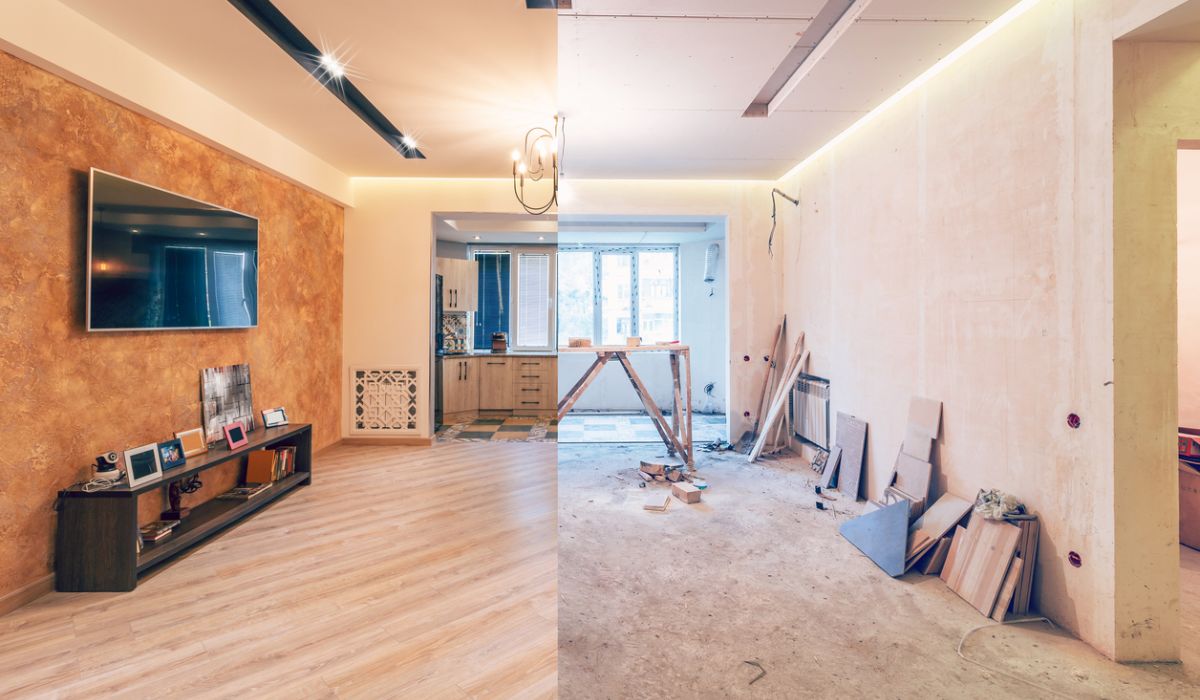
Essential Considerations For A Flat Conversion
Converting a property into a flat can appeal to property developers and homeowners, offering the potential to maximise space and increase rental income.
However, a flat conversion involves navigating complex planning regulations, building codes, and practical considerations. This article will explore the key factors that must be addressed to ensure a successful transformation of your property.
From securing the necessary planning permissions to optimising the layout for functionality and appeal, we will provide essential guidance to help you make informed decisions throughout the conversion process, ensuring that your project meets legal requirements and market expectations.
Have You Had A Feasibility Assessment?
Before starting any property development project, a feasibility assessment is crucial to ascertain its viability and potential success. This evaluation helps identify and analyse the proposed project’s legal, economic, and technical aspects.
It may seem like a lot of technical jargon, but without a feasibility assessment, you are putting your entire project at risk of failure, resulting in no new flat and a large portion of money thrown down the drain!
A feasibility assessment will provide insights into planning permission likelihood, financial forecasts, and environmental impacts. It allows you to adjust your plans based on realistic outcomes and informed predictions, reducing risks and enhancing the project’s potential profitability.
Working with professionals for a thorough feasibility study ensures that every aspect of your development is meticulously scrutinised, setting a solid foundation for your project’s planning and execution phases.
For example, suppose you have a feasibility discussion with our team at Detailed Planning. In that case, our team of architects will be able to say confidently whether we envisage you coming up against any issues.

Do You Need To Get Planning Permission?
Determining whether you need planning permission for your project is a critical first step in any property development or renovation. Do not panic; our team of architects and planning permission experts can help you!
Planning permission is required for most new buildings, major alterations to existing buildings, and significant changes to the use of a building or land.
However, more minor modifications and certain types of development may fall under “permitted development rights,” which do not require planning permission. It’s essential to consult with your local planning authority or a planning consultant early to clarify whether your project needs approval.
Doing so can prevent legal complications and delays, ensuring your project complies with local planning regulations and policies. This step helps streamline your project timeline and ensures all necessary legal frameworks are adhered to.
One of the best pieces of advice we can give you when it comes to a flat conversion is to speak with a planning permission expert; we will be able to give you an insight into whether you require permission or not; in some cases, it will be straightforward, in others it will be complex and need some decisions from the local authority.
Have You Considered The Space Available To You?
When planning a property development or renovation project, the available space is one of the most crucial factors. Assessing the spatial dimensions of your property allows you to understand the potential and limitations of your project.
This evaluation will enable you to design effectively, ensuring that the functionality and aesthetic aspects of the development are optimised without compromising on building regulations and comfort.
It’s essential to consider how the space can be utilised efficiently, whether for maximising living areas, ensuring sufficient natural light, or accommodating necessary amenities.
Thoughtful planning of the available space can dramatically affect the usability and feel of the finished project, impacting everything from the flow between rooms to storage solutions.
Working with architectural experts can provide valuable insights into making the most of your space, tailoring designs that reflect your needs and preferences while maximising the property’s potential.

Are There Any Structural Considerations To Think About?
Structural considerations are essential when starting building projects, especially involving modifications to an existing structure, like a flat conversion. Assessing the building’s capacity to support new or altered loads is essential, including checking the strength of existing walls, floors, and foundations.
Identifying potential structural issues early on can prevent costly and time-consuming repairs in the future. Consulting a structural engineer is advisable to ensure that any planned changes will not adversely affect the building’s integrity.
They can provide expert guidance on necessary reinforcements, such as steel beams for load distribution or underpinning works to strengthen foundations. Additionally, understanding the structural limitations can influence design decisions, ensuring that the final layout is aesthetically pleasing, structurally sound, and compliant with building regulations. This approach not only safeguards the physical safety of the eventual occupants but also protects your investment in the property.
Are There Any Building Regulations To Comply With?
Complying with building regulations, including flat conversions, is essential for any construction or property development project. These regulations ensure the work meets safety, health, and environmental standards.
They cover many aspects, including structural integrity, fire safety, insulation, ventilation, and accessibility. Understanding these requirements from the outset is crucial as they influence various project elements, from the design and materials used to the construction techniques employed.
Non-compliance can lead to significant issues, including having to redo work, fines, or even legal action. Early consultation with a building control officer or a professional in the field can help navigate these regulations effectively.
They can offer advice and guidance on ensuring your project complies with all the relevant local and national standards, thus ensuring a smooth and lawful completion of your development.

Do you Have A Project Manager?
Having a project manager for your development project, particularly for complex tasks like flat conversions, can be immensely beneficial.
A project manager coordinates all aspects of the project, from initial planning and securing permissions to overseeing construction and final inspections. Their expertise ensures the project stays on schedule, within budget, and adheres to all regulatory requirements.
They act as a central point of communication between you, the contractors, architects, and any other stakeholders, thus streamlining decision-making and problem resolution.
Working with a project manager can alleviate much of the stress of managing a development project, as they handle the day-to-day operational challenges, allowing you to focus on strategic decisions and outcomes.
For anyone looking to optimise the efficiency and success of their project, investing in a skilled project manager is a wise decision.
Speak To Detailed Planning Today For A Flat Conversion Expert
If you are considering a flat conversion and seeking expert guidance, speaking to Detailed Planning today could be your first step towards a successful project.
Our team of professionals specialises in navigating the complexities of property development, from initial design and securing permissions to overseeing the final touches of construction.
With a keen understanding of local planning laws and building regulations, Detailed Planning can help ensure that your conversion project not only meets all legal requirements but also achieves your vision and maximises the potential of your property.
Contact us to discover how our expertise in flat conversions can transform your space, enhance its value, and make your investment a resounding success.



